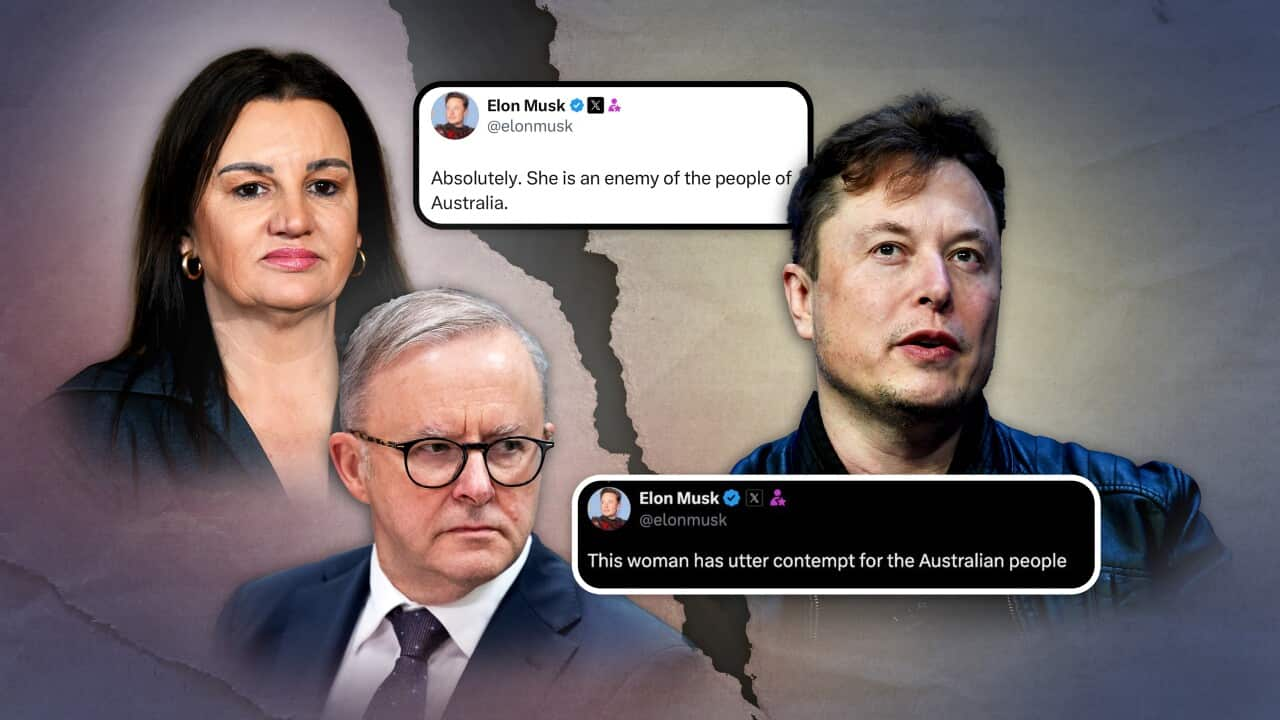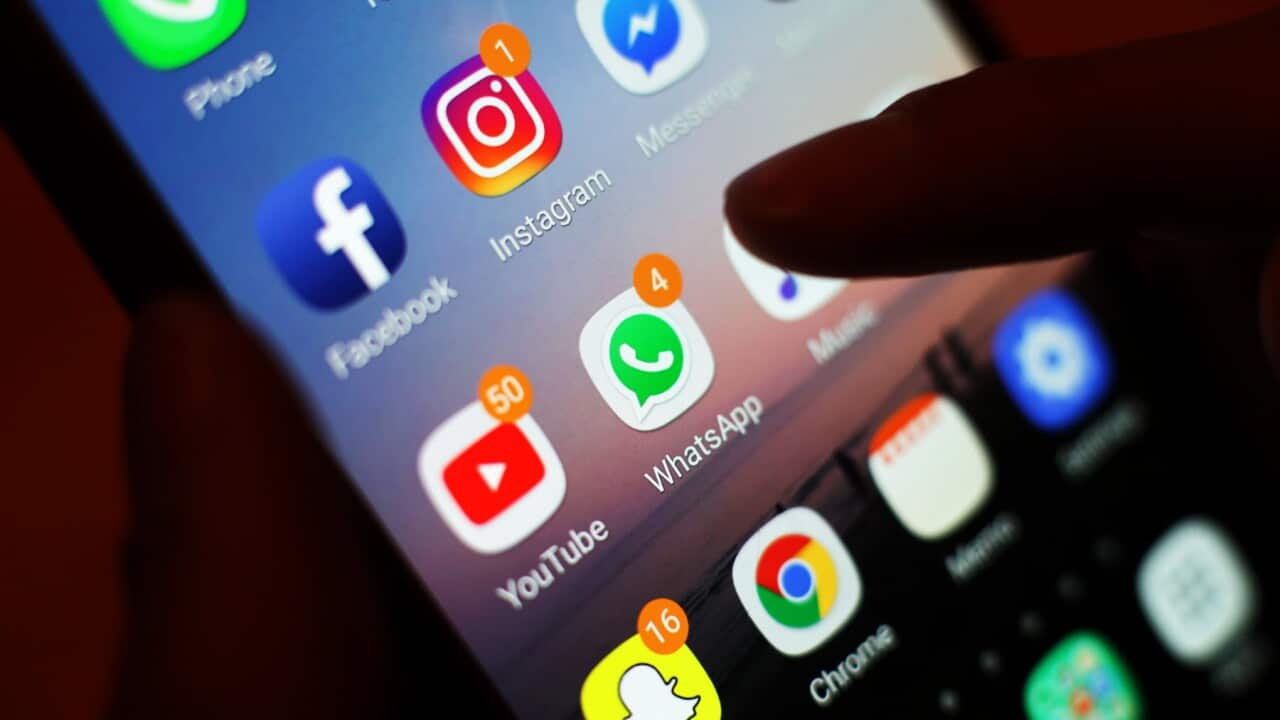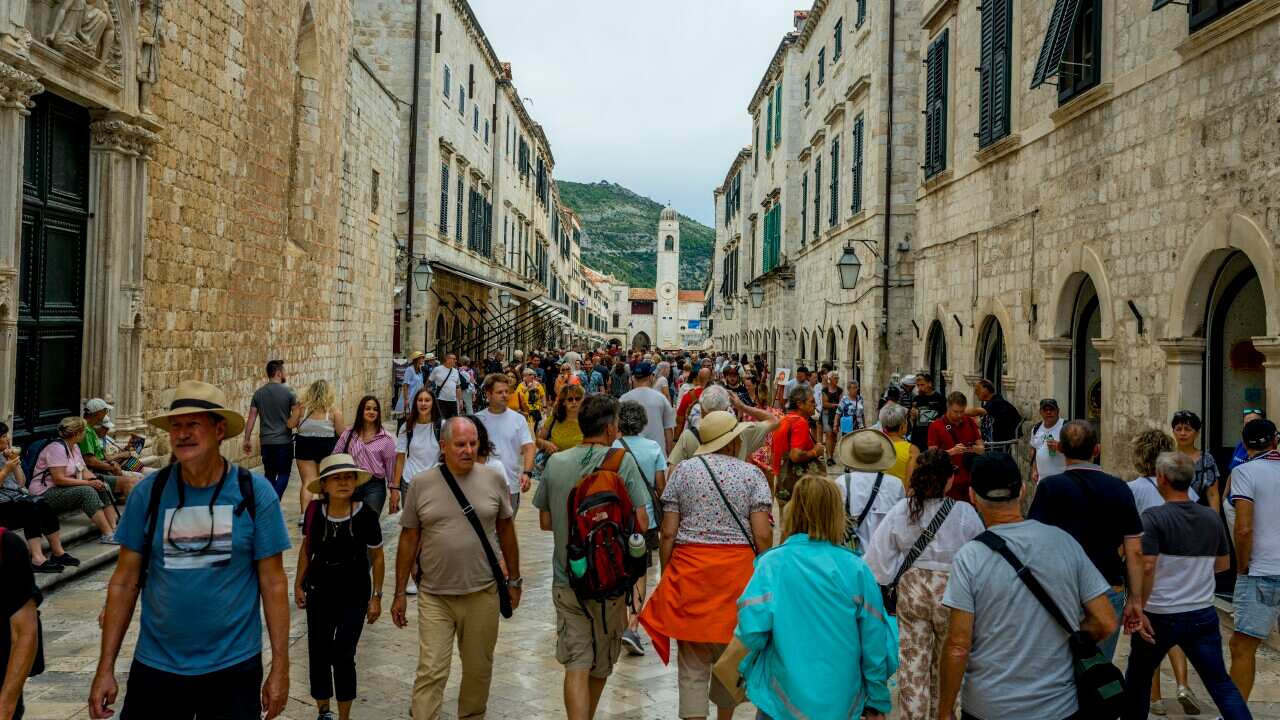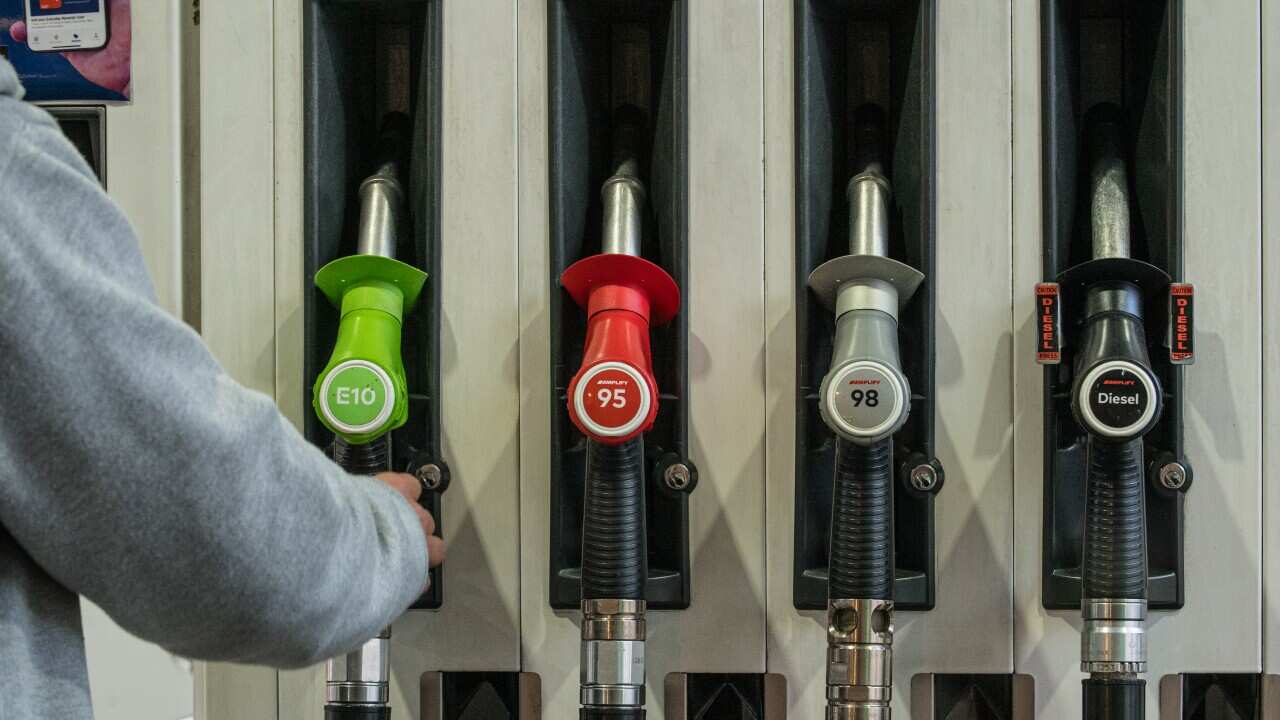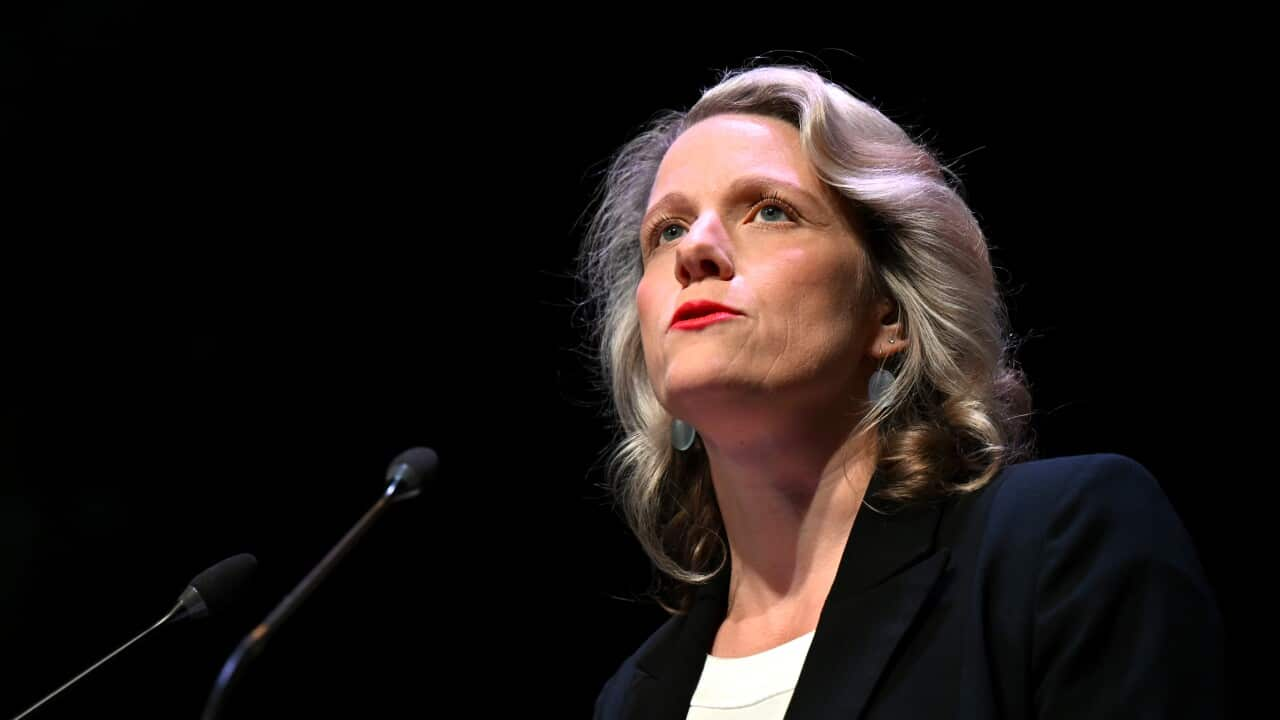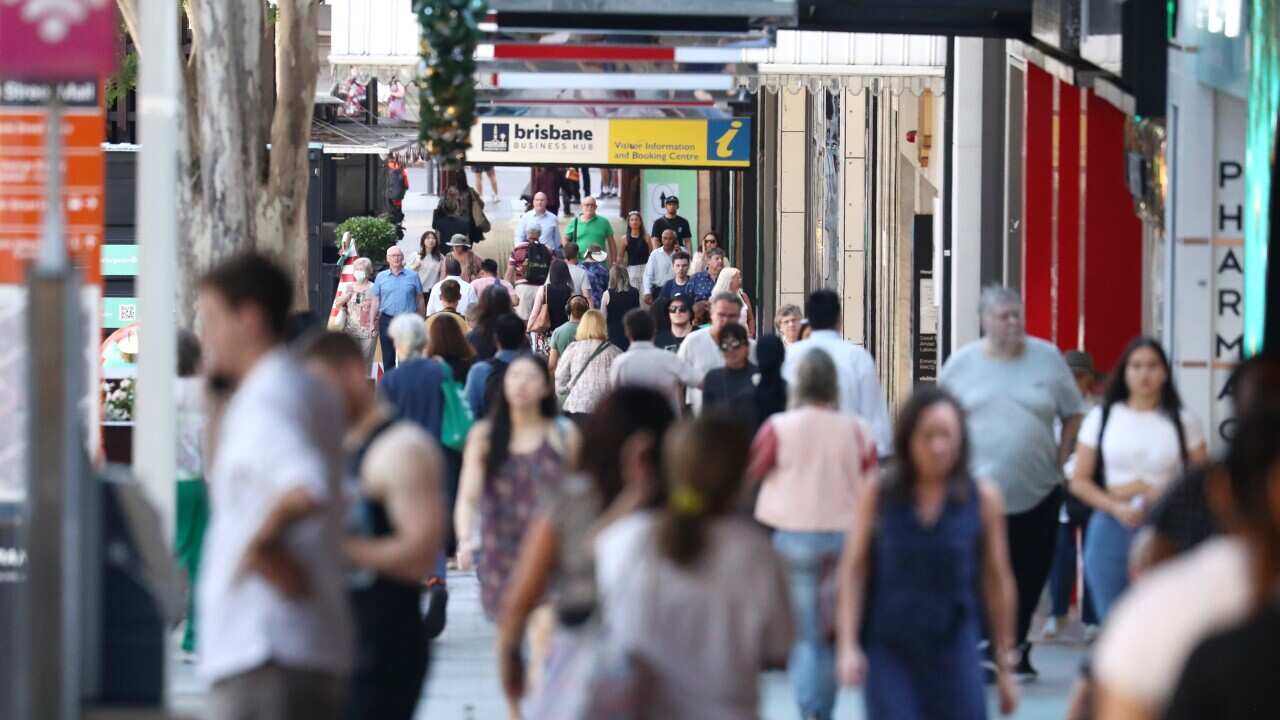This week, a war of words erupted between billionaire Elon Musk and the Australian government.
The self-proclaimed free speech fighter took on Australia's online safety regulator, refusing to comply with , formerly known as Twitter.
Prime Minister Anthony Albanese was embroiled in the drama, and on Tuesday characterised Musk as an "arrogant billionaire who thinks he's above the law, but also above common decency".
Musk clapped back that same day, suggesting that Australia's court orders amounted to an attempt at international censorship.
"I do not think I'm above the law. Does the PM (Albanese) think he should have jurisdiction over all of Earth?" Musk posted on X.
Hours later, he tweeted: "This platform adheres to the laws of countries in those countries, but it would be improper to extend one country's rulings to other countries."
Here's how the feud has unfolded.
What is the court battle about?
Last week, Australia's eSafety commissioner obtained a federal court injunction to force X to remove violent footage of a Sydney stabbing attack from their platform.
On 15 April, Assyrian Christian bishop Mar Mari Emmanuel and Father Isaac Royel at Christ the Good Shepherd Church in southwest Sydney. There was following the attack.
The eSafety commissioner's lawyer, Christopher Tran, argued the footage would cause "irreparable harm" if it remained on the platform.
However, X responded to the court order by blocking the video from Australian IP addresses — meaning it was still accessible to international audiences.

Elon Musk has said X (formerly Twitter) adheres to Australian law and that it would be "improper" to apply its laws globally. Source: AAP / Ringo H.W. Chiu/AP
"These posts did not violate X's rules on violent speech," the statement said. "X believes that eSafety's order was not within the scope of Australian law and we complied with the directive pending a legal challenge."
The statement further noted that X had received a demand from the eSafety commissioner to block the posts globally or face a daily fine of $785,000 and declared that it would "robustly challenge this unlawful and dangerous approach in court".
On Thursday, the Global Government Affairs team posted another statement saying that X believed that, by removing the content for Australian audiences, the social media platform had complied with both the commissioner's notice and Australian law.
X's challenge, they noted, was based on two key issues.
"First, we believe that these posts should not have been banned in Australia at all. The content within the posts does not encourage or provoke violence and fits within the Australian legislation's category that permits content that can be reasonably considered as part of public discussion or debate," the statement said.
"Second, we oppose the demand to globally remove this content from X, as we believe that no government should possess such authority."
"X believes in respecting the right of a country to enforce its laws within its jurisdiction, and also believes that governments should not be able to censor what citizens of other countries see online, and that regulators should stay within the boundaries of the law. We believe these principles are important to defend and we will continue to do so."
Bishop Mar Mari Emmanuel on Thursday said he was "not opposed to the videos remaining online" as he defended what he said was the "God-given right" to free speech.
The political reaction
Musk's staunch refusal of the eSafety commissioner's demands has provoked the ire of Australian politicians from both sides of the political aisle, who have denounced the divisive businessman in myriad ways over the past week.
Environment Minister , while Greens senator Sarah Hanson-Young dubbed him a "narcissistic cowboy".
Opposition Senate leader Simon Birmingham attacked X's "ridiculous and preposterous argument" that removing imagery of a terrorist attack amounted to censorship.

X has been told it will face a daily fine of $785,000 if it does not comply with the demand, which it has said it will "robustly challenge". Source: Getty / NurPhoto
"This isn't about freedom of speech," he said. "This is an egotist. He is someone who's totally out of touch with the values that Australian families have, and this is causing great distress."
"I think it is causing damage to his own brand of Twitter, which has now become X," the prime minister continued. "He clearly sees this as a vanity project for himself, rather than about the people who are consumers on this platform."
Tasmanian independent senator Jacqui Lambie, meanwhile, offered an even more scathing character assessment, labelling him a "social media knob with no social conscience".
"Someone like that should be in jail and the key be thrown away," she told Sky News.
Lambie, who also labelled Musk a "friggin' disgrace", deleted her X account in a boycott of the social media platform and urged other politicians to do the same.
"When you want to lead by example, it has to happen from here, so start switching off X," she told Sky News.
Musk hit back, labelling Lambie an "enemy of the people of Australia", and later said she had "utter contempt" for Australians.
Opposition leader Peter Dutton agreed that the violent stabbing footage should be removed in Australia, but appeared to back Musk's that it should remain online globally.
"We can't be the internet police of the world — I know the prime minister's trying that at the moment — but we can have a say of what images are online here in our country," he said during an interview with 2GB radio on Thursday.
"If we have a situation where you've got a cleric being stabbed and that's inciting violence, then the laws are very clear about the ability to take that down.
"I don't think the law as I say extends to other countries, nor should it, but I think that's a very real issue."
Calls social media age verification
Dutton stressed that social media platforms and the people who use them should be subject to the same laws online as the rest of Australian society, and that when users are exposed to potentially harmful content, intervention by the authorities is justified.
"We need to understand that our kids, and particularly those who are reading content ... some of it from radicals who are trying to indoctrinate kids to a particular ideology — that's what police are fighting back against at the moment, and more strength to their arm," he said.
Against the backdrop of X's feud with the Australian government, the federal Opposition has ramped up its campaign to trial age verification on social media, in a bid to block children from being exposed to harmful images and videos.
Opposition communications spokesperson David Coleman, who has long been pushing for online age verification, cited the violent footage of the Wakeley church stabbing as proof that more regulation is needed to protect young Australians.
"There's no question that social media is damaging for the mental health of children," he said.
"There is ample evidence to show that we need, as a society, to take strong action on this issue, and that is about verifying age and saying if a child is too young to be safely on social media, they shouldn't be there.
"Tragically, there's no doubt that thousands of children in Australia have seen extremely disturbing images on social media in the last two weeks, and we've got to stop that."
